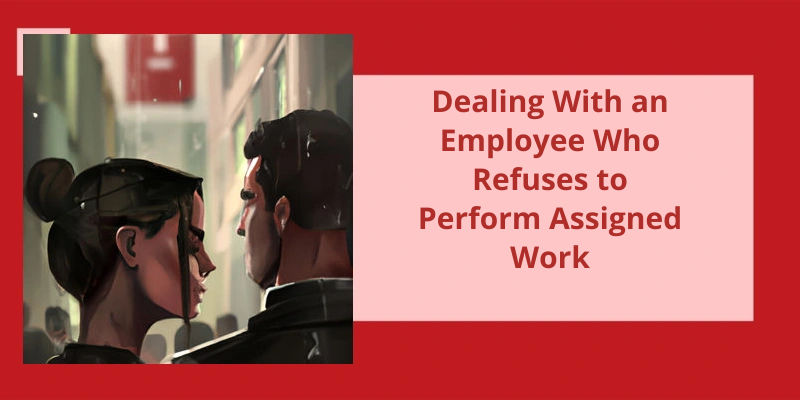As human beings, we all have emotions and needs that require attention and fulfillment. Relationships, in particular, demand a lot of effort and compromise. It takes two individuals who’re willing to communicate, understand, and respect each other's feelings. While experiencing some level of fatigue in a relationship is normal, it's essential to recognize when it becomes excessive and affecting one's well-being. There are several reasons why someone may get tired of their boyfriend or partner. It could be due to a lack of communication, feeling taken for granted, growing apart emotionally, or simply losing interest. Whatever the reason may be, it's crucial to dig deeper and address the root cause to prevent any emotional distress or relationship breakdown.
Is It Normal to Get Tired of Your Boyfriend?
With time, the initial spark that drew you together may fade, and you may start to see each others flaws more clearly. This can cause tension and lead to feelings of boredom or frustration. However, it’s important to remember that relationships require effort and commitment. It’s not always easy, but if you and your partner are committed to working through your issues, you can overcome any challenges that come your way.
One of the best ways to maintain a strong relationship is to communicate openly and honestly. If youre feeling tired of your boyfriend, try talking to him about how youre feeling. Be clear and concise, and avoid pointing fingers or placing blame. Let him know what specific behaviors or actions are bothering you, and work together to find a solution that works for both of you. Remember, it’s not about changing each other, but rather working together to build a stronger relationship.
Another important factor in a healthy relationship is balance. It’s important to have time apart as well as time together. Take time for yourself to pursue your own hobbies or interests. This can help you reconnect with yourself and bring a fresh perspective to your relationship.
Lastly, it’s important to remember that no relationship is perfect. Even the happiest couples have their rough patches. It’s normal to get tired of your boyfriend from time to time. However, it’s how you handle those feelings that will determine the strength and longevity of your relationship. Take the time to communicate openly, maintain balance, and work together to overcome any challenges. With effort and commitment, you can build a relationship that lasts a lifetime.
Signs That It’s More Than Just Being Tired of Your Partner: When to Consider Ending the Relationship
- Lack of communication
- Frequent arguments
- Loss of physical and emotional connection
- Unwillingness to compromise
- Repeated infidelity
- Feeling of being taken for granted
- Constant negativity and criticism
- Unequal distribution of responsibilities
- Disrespectful behavior
- Emotional or physical abuse
Relationships can be rewarding, but like anything in life, they require effort and hard work. As you spend more time with your partner, you may find yourself becoming more tired and fatigued. If you’ve been wondering why you’re feeling this way, it could be because you and your partner are going through changes at different paces, or perhaps one of you isn’t willing to accept those changes. In either case, it’s important to identify the source of the fatigue and work towards a solution before it’s too late.
Why Do I Get Tired in a Relationship?
It’s natural to get tired in a relationship, especially if one person changes and the other isnt willing to accept those changes. This is often referred to as relationship fatigue, and is a common occurrence in long-term relationships. In fact, research shows that most relationships experience some form of fatigue or burnout at some point.
If one person is always putting in more effort than the other, it’s easy to feel unappreciated and undervalued. This can lead to feelings of resentment and a sense of disconnection, which ultimately leads to a breakdown in the relationship.
When one partner changes and the other doesnt, it can also lead to feelings of isolation and loneliness. If you arent bonding over the changes youre going through, it’s easy to grow further apart.
If youre experiencing relationship fatigue, it’s important to take steps to address the underlying issues. This might mean seeking out couples therapy or counseling to work through your issues in a constructive and supportive environment. It might also mean taking a break from the relationship to assess your needs and priorities, and to figure out if the relationship is still fulfilling for you.
The Signs of Relationship Fatigue and How to Recognize It Early on
- Lack of enthusiasm in spending time together
- Decrease in physical intimacy
- Frequent arguments and bickering over small things
- Feeling drained and emotionally tired after spending time with your partner
- Thinking about spending time alone rather than with your partner
- Loss of interest in shared activities and hobbies
- Feeling a sense of boredom or staleness in the relationship
- Feeling distant and disconnected from your partner
- Thinking negatively about the future of the relationship
As much as being in a relationship can be a wonderful thing, it can also come with some emotional challenges. These challenges can take a toll on one’s body and mind, resulting in feeling tired and exhausted. In this article, we’ll explore some of the reasons why you might feel tired easily in a relationship and what you can do about it.
Why Do I Get Tired Easily in a Relationship?
When we’re in a relationship, we open ourselves up to being more vulnerable than we may have ever been before. Allowing another person to be privy to your deepest thoughts and emotions takes a certain level of energy and can quickly tire even the most resilient of people. Additionally, the process of getting to know someone new can be exhausting. There are countless conversations to be had, dates to go on, and activities to try out together. All this excitement can be thrilling, but it can also leave you feeling drained.
Another factor that contributes to feeling tired in a relationship is the quality of the relationship itself. If a relationship is less than ideal, it can take a significant toll on a persons energy levels. Constant fighting and bickering, dishonesty, or a lack of emotional connection can all leave someone feeling completely drained. Conversely, a healthy, flourishing relationship can leave a person feeling revitalized and full of energy.
One of the main reasons that relationships can be so tiring is that they require a considerable amount of emotional labor. This is especially true in the early stages of a relationship, as both people are working to establish trust, respect, and mutual understanding. It takes a lot of effort to communicate effectively, empathize with your partners feelings, and build a strong emotional bond.
Whether it’s the emotional labor, the excitement of getting to know someone new, or something deeper going on within yourself, it’s important to recognize that this is a normal experience and one that can be managed with self-care and open communication with your partner. By taking care of yourself, setting healthy boundaries, and investing in a relationship that brings you joy and happiness, you can find the energy you need to thrive in your love life.
How to Differentiate Between a Healthy and Unhealthy Relationship
- Healthy relationships involve open and honest communication.
- In a healthy relationship, both partners respect each other’s boundaries and individuality.
- Healthy relationships are built on a foundation of trust and mutual respect.
- Unhealthy relationships are often characterized by jealousy, possessiveness, and control.
- In unhealthy relationships, partners may not feel comfortable expressing their true thoughts and feelings.
- Physical, emotional, or verbal abuse is never a part of a healthy relationship.
- Healthy relationships involve teamwork and a willingness to compromise.
- In an unhealthy relationship, one partner may try to manipulate or dominate the other.
- A healthy relationship involves mutual support and encouragement.
- In an unhealthy relationship, partners may bring each other down or discourage each other’s goals and aspirations.
- Healthy relationships are characterized by mutual growth and personal development.
- In an unhealthy relationship, one partner may hold the other back or stifle their personal growth.
It’s important to acknowledge when a relationship is taking a toll on your well-being, and to take necessary steps to address the issue. In some cases, it may require reassessing the relationship and considering if it’s a healthy fit for both parties involved. In this article, we’ll explore some causes of exhaustion in relationships and ways to handle it.
Is It Normal to Be Exhausted in a Relationship?
Being in a relationship can be exhausting, both physically and emotionally. Constantly balancing your own needs and desires with your partners can be draining, especially if communication is lacking or if one or both parties aren’t meeting each others expectations. Additionally, the pressure to maintain a successful relationship can add stress and anxiety to an already tiring situation.
It’s important to remember that being exhausted in a relationship isn’t healthy or normal long-term. Over time, chronic stress from a struggling relationship can lead to physical and mental health issues. It’s important to seek help and support, either through counseling or by talking to trusted friends and family members, to address the root causes of exhaustion and work towards establishing a healthier relationship dynamic.
By prioritizing self-care and seeking help when needed, you can work towards creating a fulfilling and energizing relationship dynamic.
The Impact of Social Media on Relationships and Exhaustion
Social media has a significant impact on relationships by creating unrealistic expectations and increasing jealousy and mistrust. It can also lead to exhaustion due to the constant need to keep up with updates and notifications.
Conclusion
It's important to evaluate the reasons behind these feelings and communicate them with your partner in a respectful and open manner. Addressing these issues can help improve the relationship and prevent the fatigue from developing into more serious problems. Ultimately, it's up to the individuals involved to prioritize their needs and make decisions that are best for their emotional well-being.






